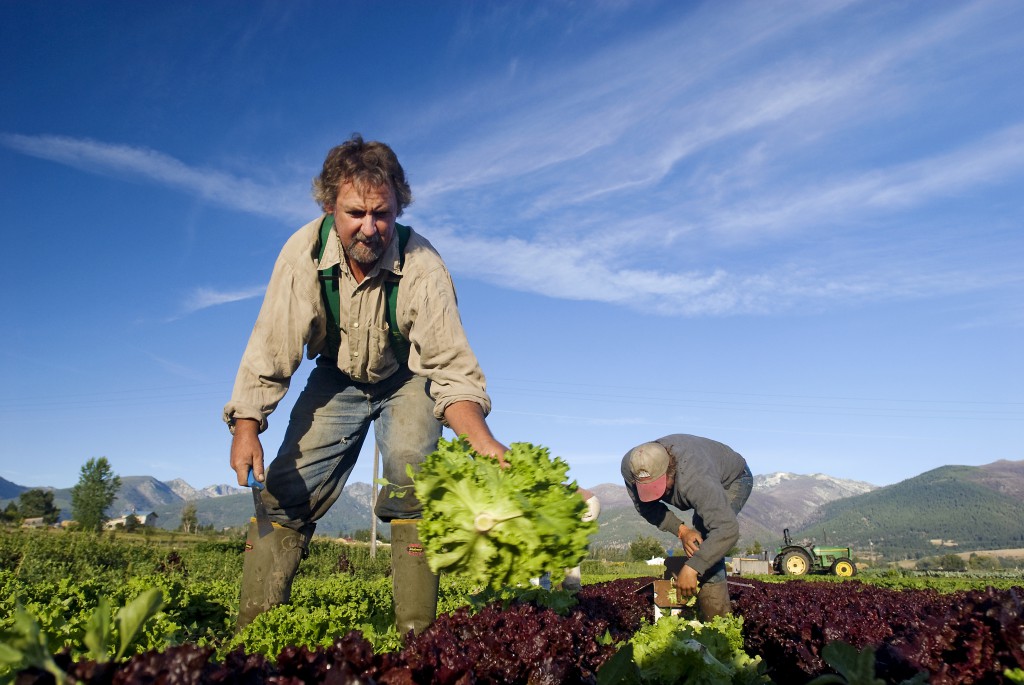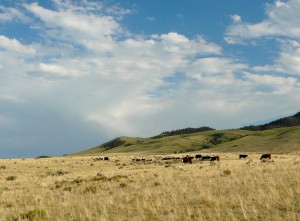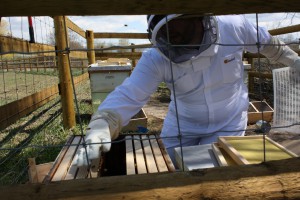
About the Program
Thank you for considering listing your work opportunity on Farm Link Montana! We developed this resource because we were approached by farmers who were looking for a better way to find workers. Some of the challenges they were dealing with include:
- Getting too many emails from applicants who seemed to be copying-and-pasting the same information to 100 different farms and didn’t seem to have any particular interest in their farm
- Lacking a tool for dispute resolution and losing workers part-way through the season due to communication issues
- Feeling like not enough potential workers knew about the opportunities available in Montana and wanting to improve their workforce by making Montana a more desirable destination for workers

In response to this feedback, we interviewed staff at some of the best internship programs around the country and identified a few key best practices that we have integrated into our program:
- Common Application: Using a common application means that host farms get the same information from every applicant. Applicants may select a maximum of 8 farms in which they’re interested, meaning that you get applicants who reviewed your listing thoroughly. Note: If you list your position in many places, we strongly encourage you to direct all of your applicants to apply through Farm Link Montana so that you can reap the benefits of this aspect of the program.
- Dispute Resolution Services: Having an unbiased, neutral partner organization who can offer dispute resolution takes pressure off of the host farms and can help to solve a problem before it gets to the point when the worker wants to leave. We partner with the Community Dispute Resolution Center (and have connections with other mediators around the state as well) to assist you in keeping your workers happy.
- National Prominence: Creating a statewide resource raises the profile of a state as a supportive environment for learning how to farm or ranch. We advertise Farm Link Montana on national listservs and with colleges and universities across the country to ensure that our applicant pool continues to grow and that we attract the best applicants.
The primary way in which we have broken from national best practice is that we offer our service for free! While most other organizations charge work hosts and/or work seekers fees ranging from $50 – $1,500, federal funding enables us to offer our service completely free of charge.
The Listing Process
To create a listing:
- Review the information on this page.You may also want to read through the Info for Workers page to understand what we’re asking of the applicants and what their expectations of you and the process are.
- Create a Farm Link Montana account and complete the farm host application. Please complete the application as thoroughly and thoughtfully as you can. The application will allow you to save your work and come back to finish it at a later time, so feel free to take your time before submitting your application.
- We’ll review the applications and forward them to you. We review each application to ensure that it’s complete. Then, if the applicant has selected you as one of his or her top choices, we’ll forward the application on to you!
- Respond to applicants and set up an interview. We have encouraged the applicants to contact you about a week after they submit their application to us to follow up with you about any additional questions. However, the primary responsibility is on you to follow up with applicants and manage the hiring process. In addition, if there are any additional questions specific to your operation, lifestyle, or other unique situation that you would like to ask, you may send those directly to the applicant when you receive their application.
- Let us know when you’re done hiring for the season. Contact Mary so that we can update your listing to reflect the fact that you’re no longer hiring. Your farm or ranch’s profile will still be visible and applicants will be encouraged to check back for future opportunities.
About Hosting an Intern

Any Montana farmer or rancher can participate in an internship program. While farmers are not required to be organic or marketing direct-to-consumer, our experience has indicated that the majority of interns are seeking training on farms that utilize sustainable practices and/or direct marketing.
While working with interns can be rewarding and productive, these relationships are not without their challenges. We have found that interns tend to have a different set of expectations than a typical paid employee, with much more of an interest on building knowledge and relationships. By hosting an intern through Farm Link Montana’s Work Link, you are agreeing to be a mentor as well as a supervisor. While we recognize that this isn’t always easy—being a good mentor in addition to being a good farmer is tough!—this is an important responsibility that we hope you will take seriously.
Having an intern will require that you take time to explain your procedures, demonstrate techniques, and correct mistakes. Describing a position as an internship implies more than simply working by your side. Most interns will also seek insight into why you make the decisions you make, how your values inform your way of farming, and more. It is essential to the success of an internship experience that the host farmer possesses a strong commitment to sharing his or her knowledge and experience with people who may not be efficient workers right off the bat. With time, an intern can become skilled and valuable to your operation. From the experienced hosts we’ve talked to, having effective, well-trained interns can be a game-changer, providing them with the assistance and support they need to scale up their farms, diversify their marketing, and even take a summer vacation once in a while! Here are a few best practices we captured during a workshop hosted in 2015:
- Develop a solid agreement in advance of their arrival
- Welcome them and engage them in your farm and in your family
- Feed them well
- Pay on time
- Assign tasks that will give them a sense of accomplishment (i.e. structure tasks so they can be accomplished within a reasonable and visible time frame)
- Give them something to take ownership of, be it a bed of carrots or bringing in the sheep at night
- Provide them with a living space separate from your own (for your sake and theirs!)
- Have fun and provide opportunities for recreation!
Other Resources
In addition to listing work opportunities, here are a few other local resources you should know about:
- Educational Opportunities: CFAC offers a variety of courses and workshops throughout the year, from on-farm, production-oriented field days during the summer to classroom-based business planning workshops throughout the winter. The Certified Farm Startup Program is geared towards beginning farmers and farm workers interested in owning a farm someday. This program includes Field Days at established farms and ranches across the state. We strongly encourage you to support your workers in attending these field days by providing them with time off, transportation if needed, and space to make food they can bring to potlucks, when applicable. If you are interested in hosting a field day at your farm, contact Mary for more details.
- Mentorship: If you’re interested in gaining more experience as an intern host or employer, check out our Farmer Mentor Program, a program designed to provide training and support to experienced farmers who host workers on their farms. In partnership with the Quivira Coalition, The Farmer Mentor Program provides training and technical support to farm employers and mentors in: finding workers who are qualified and a good fit; understanding the legalities and logistics related to having an on-farm employee; communicating with farm workers and evaluating their work and learning. Mentors receive a stipend that can be used on educational materials or visits upon completion of the program. See more details here or contact Mary.
- Conflict Resolution: You know that farming can be tedious, frustrating, and tiring work and shared living arrangements can be challenging. Sometimes this environment can take a toll on personal relationships and from time to time, we see workers leaving in the middle of the season due to communication issues, leaving the farmer really hustling for the remainder of the season. We have partnered with the Community Dispute Resolution Center in Missoula to offer free conflict resolution services to workers and host farms. If you have a worker who seems unhappy, we encourage you to reach out to us and we can help to connect you with an unbiased, fair mediator at CDRC. Contact Dave for more details.
In addition, there are many resources online that can help you develop a successful internship program. Here are a few we like:
- Interview Checklist – The Maine Organic Farmers and Gardeners Association (MOFGA) developed this comprehensive list of things you might want to ask potential interns in an interview.
- Internships in Sustainable Farming: A Handbook for Farmers – This resource was developed by the Northeast Organic Farming Association of New York and has some good information on creating a positive learning experience, dealing with living arrangements, legal issues, and other considerations.
- Advice for Farmers – This information guide was developed by the Ohio Ecological Food and Farm Association (OEFFA) and covers many things you may want to consider for your intern program.
Things to Consider and Questions to Ask
Sometimes it’s easy to get so accustomed to our environment that we forget how different farming is from most other occupations. To aid you in getting the right worker for your farm, we recommend taking some time to walk through a season in your mind and consider the kind of physical strength, endurance, skill, interest, and other attributes that it would take for someone to be successful on your farm. Be clear about what you’re looking for and be clear about what your bare minimums are. While we don’t recommend that you get so specific that it’s hard to find help, we do recommend getting a good sense of your needs. Here are a few things you should consider:
- Schedule: What is the daily schedule? Does it change throughout the season?
- Education: Education is key motivation for interns. How will you fulfil this aspect of the internship? What is your teaching style?
- Work: What kind of work can you effectively teach and delegate to a worker? This will likely depend on the specific individual you hire, but it’s good to have a general sense of the kind of work you would expect them to do.
- Compensation: How will you compensate your interns? Note that labor laws on farms are very specific. Details on labor laws and legal issues are provided below.
- Transportation: Does the worker need to provide their own transportation? Will they be required to use their vehicle for work-related tasks and, if so, how will they be compensated for that use?
- Recreation: What kinds of recreational opportunities or other neat regional attributes can you highlight to draw workers to your region?
- Lifestyle: Can you host someone who has dietary habits different from your own (i.e. omnivore, vegan, gluten-free)? Someone who has pets?
Legal Issues
Although there has been a long history of farms and ranches providing volunteer opportunities for people to learn the skills of the trade, labor law is specific about the requirements for having any help on your farm. On the east coast, farmers are starting to be targeted by lawsuits from unpaid or underpaid interns and labor departments across the country are starting to pay more attention to our field. We strongly encourage you to review the information below and learn more about your rights and responsibilities. Although the listing information asks you to state whether or not you are offering payment to your interns, we strongly encourage everyone to offer fair and legal payment to interns. Visit Farm Commons for more on an array of legal issues.
- Farm Commons’ Guide to Classifying Your Workers: Employees, Interns, Volunteers, or Independent Contractors?
- Overview of Federal and Montana Employment Regulations
- Federal Fact Sheet on Agricultural Labor
- Federal Fact Sheet on Internships
Fine Print
CFAC does not vet or endorse host or worker candidates. It is the responsibility of the host and worker participants to safeguard themselves by clearly defining and clarifying expectations, checking references, and asking questions. CFAC is not a party to any work agreement and the terms of any agreements should be considered private agreements between the host and the worker only.
CFAC is not responsible or liable for any harm or injury that may occur during a position. Proper safety training and precautions should be taken to reduce the chances of injury or accidents.


